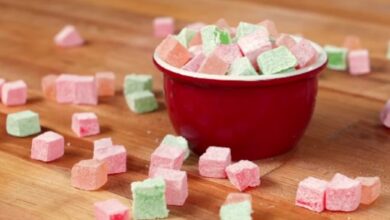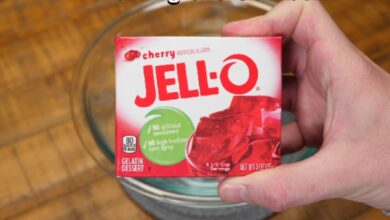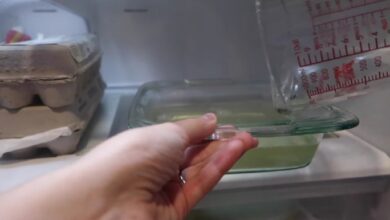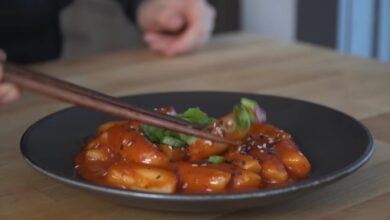Is Cooking Wine Halal
The use of cooking wine in recipes is a complex and often debated topic within the Muslim community. The primary concern revolves around the alcohol content in cooking wine and whether it renders the food haram (forbidden) or halal (permissible). Understanding the nuances of this topic is essential for those who adhere strictly to Islamic dietary laws.
Introduction
Cooking wine is often utilized in various cuisines to enhance flavors, tenderize meats, and add depth to sauces. However, for Muslims adhering to halal dietary guidelines, the inclusion of any form of alcohol in food preparation raises significant concerns. This article delves into whether cooking wine is halal, exploring the principles of halal food, the role of wine in cooking, scholarly opinions, and available alternatives. By the end, you will have a comprehensive understanding of this issue and be better equipped to make informed decisions in your culinary practices.
The Principles of Halal Food
In Islam, halal refers to what is permissible according to Islamic law, as defined in the Quran and the Hadith. Halal dietary guidelines strictly prohibit the consumption of alcohol, pork, and their by-products. Any food or drink that contains these elements is considered haram.

Cooking Wine: Definition and Use
Cooking wine is wine specifically formulated for cooking, often with added salt to extend its shelf life. It is used in recipes for its ability to:
- Enhance the flavor profile of dishes.
- Tenderize meats.
- Add acidity and depth to sauces and gravies.
Alcohol Content and Cooking Process
One of the key concerns is the alcohol content in cooking wine. Despite common beliefs that alcohol completely evaporates during cooking, scientific studies show that some residual alcohol remains, depending on the cooking time, temperature, and method used. For example:
- Adding wine and immediately removing it retains about 85% of its alcohol content.
- Simmering for 15 minutes can reduce the alcohol content to around 40%.
- After two hours of cooking, about 5-10% of the alcohol might still be present.
This residual alcohol is a significant factor in determining the halal status of dishes prepared with cooking wine.
Scholarly Opinions on Cooking Wine
Islamic scholars have varied opinions regarding the use of cooking wine. The consensus among many scholars is that:
- The Hanafi school considers food cooked with alcohol as makrooh (disliked).
- The Shafi’i and Hanbali schools deem it deserving of hadd punishment.
- All major schools of thought agree on the impurity of alcohol, emphasizing that its presence in food is prohibited.
These opinions underscore the importance of avoiding cooking wine to maintain adherence to halal principles.
Alternatives to Cooking Wine
For those seeking to maintain halal dietary practices, there are numerous alternatives to cooking wine that can be used without compromising on flavor:
- Grape Juice: Provides a similar sweetness and depth.
- Apple Cider Vinegar: Adds acidity and a subtle fruity flavor.
- Lemon Juice: A versatile substitute for acidity.
- Broth: Enhances the savory aspect of dishes.
Experimenting with these alternatives can help achieve the desired taste and texture in recipes while adhering to halal guidelines.
Where to Buy Halal Cooking Ingredients
Many grocery stores and online retailers offer halal-certified products. Look for items labeled with a credible halal certification logo to ensure compliance with Islamic dietary laws. Specialty stores and halal markets are also excellent sources for finding suitable ingredients.
Conclusion
The use of cooking wine in recipes poses a challenge for Muslims who follow halal dietary guidelines due to the residual alcohol content that remains even after cooking. Most Islamic scholars agree that cooking wine is not halal and recommend avoiding it. Fortunately, numerous alternatives can replicate the flavor and function of cooking wine in dishes, ensuring that meals remain both delicious and halal.
By making informed choices and exploring halal substitutes, it is possible to enjoy a rich and diverse culinary experience that aligns with religious beliefs.
Frequently Asked Questions
Is food cooked with wine considered halal?
Food cooked with wine is generally not considered halal, as the residual alcohol content violates Islamic dietary laws.
Can alcohol evaporate completely during cooking?
While some alcohol evaporates during cooking, studies show that a portion of it remains, making the dish non-halal.
What are some halal alternatives to cooking wine?
Grape juice, apple cider vinegar, lemon juice, and broth are popular halal substitutes for cooking wine.
How can I ensure the ingredients I buy are halal?
Look for credible halal certification logos on products and purchase from reputable halal markets and retailers.
Can non-alcoholic wine be used in halal cooking?
Non-alcoholic wine can be an acceptable alternative if it does not contain any alcohol.
Are there any exceptions for using cooking wine in small amounts?
Islamic law prohibits any amount of alcohol, regardless of its quantity.
Should I inquire about wine in food when dining out?
Yes, it is advisable to ask about ingredients and preparation methods to ensure compliance with halal guidelines.
What should I do if I accidentally consume food with cooking wine?
Seek forgiveness and strive to adhere to halal dietary practices in the future.
Are there specific types of vinegar that are halal?
Vinegar that is free from alcoholic fermentation is considered halal.
Can wine be used in halal cooking if added early in the cooking process?
Even if added early, residual alcohol content can render the dish non-halal.
What are the main concerns with using wine in cooking?
The primary concern is the residual alcohol content that remains after cooking.
How can I replicate the flavor of wine in recipes without using it?
Experiment with halal substitutes like grape juice and apple cider vinegar to achieve similar flavors.
Are there health concerns associated with consuming residual alcohol in food?
While cooking may reduce alcohol content, health risks and religious prohibitions remain concerns.
How does the cultural significance of halal food impact the use of cooking wine?
Halal food practices are deeply rooted in religious and cultural traditions, emphasizing the importance of avoiding alcohol.
What are the ethical implications of using cooking wine in halal recipes?
Using cooking wine can trivialize the prohibition of alcohol in Islam, underscoring the need for halal alternatives.
Understanding the complexities surrounding the use of cooking wine in halal cuisine is crucial for those committed to following Islamic dietary laws. By opting for halal substitutes and adhering to religious guidelines, one can enjoy flavorful and compliant meals.
Read also:





